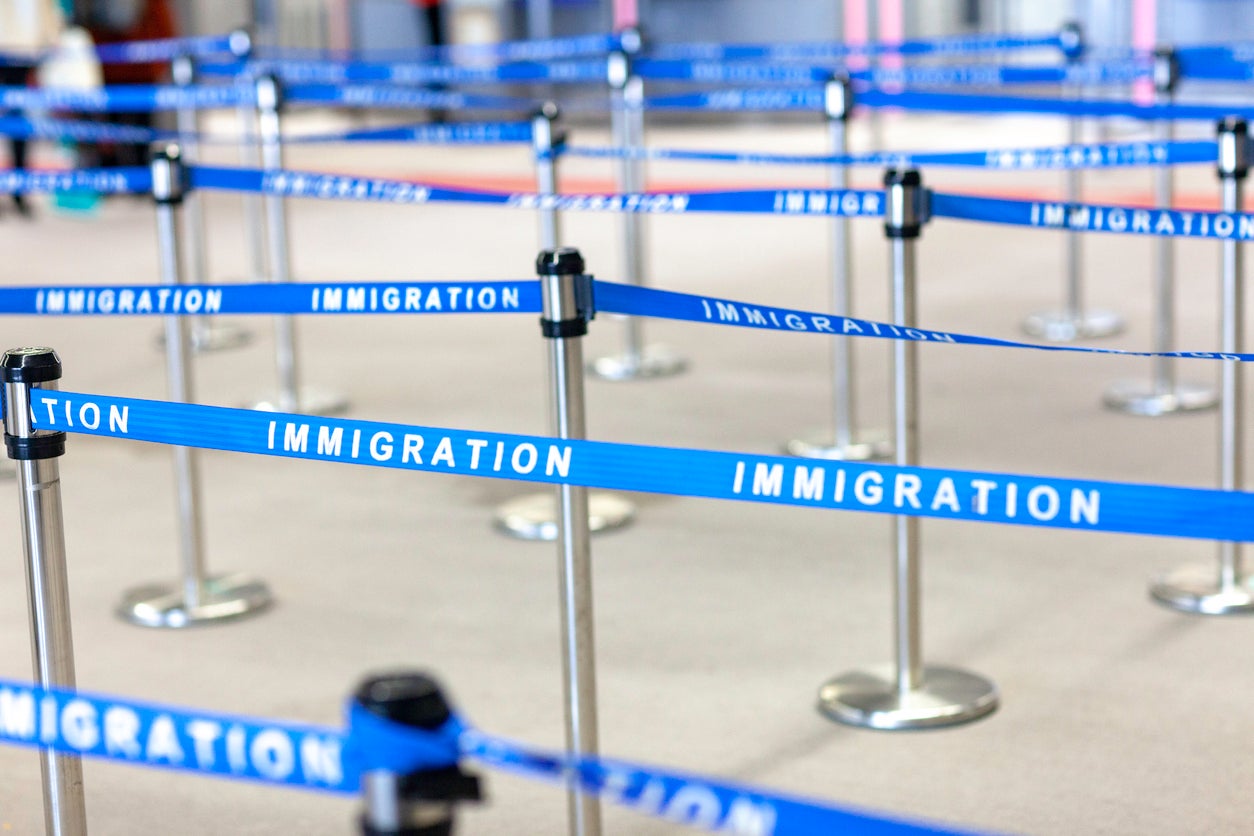Aussie tourist warns of US border rule that got him strip-searched and thrown in jail
‘When you’re not in your own country you have no control over what’s going to happen to you so I was kind of thinking I would never get out,’ says traveller

An Australian tourist has issued a warning to fellow travellers after falling foul of a US Immigration rule which saw him strip-searched and thrown in jail for 30 hours.
Jack Dunn, a 23-year-old student from the state of Victoria, had booked a loose, independent trip through the US and Central America - planning to work his way through Hawaii and the US before moving on to Mexico.
Mr Dunn planned to keep his travels flexible, booking hostels and buses as he went along.
He arrived in Honolulu, Hawaii, on 5 May 2022, and was checked over by the US’s notoriously strict Customs and Border Protection (CBP).
The official who greeted him asked if Jack had a plane ticket to leave the US at the end of his trip, to which he said he had an onward plane ticket to Mexico.
An immigration staffer then pulled him aside, saying “You’re going to have to come with me”.
Mr Dunn was entering the country under the Visa Waiver Programme (known as Esta to most in the UK). Under the programme, you must have a ticket booked back out of the country - but not to a border country neighbouring the US.
Not knowing this small-print rule, Mr Dunn says he was held for hours for questioning, during which an airline worker in the airport offered him his phone to allow him to book a plane ticket there and then.
He says officers didn’t appear to even consider that it could have been an innocent mistake.
“He clearly felt sorry for me and he was like ‘we just have to show them that you’ve got another ticket booked out of America and then you’ll be fine,’” Mr Dunn told News.com.au.
He tried to book a flight on to Panama, “but that was $500, and I didn’t have that in my account - then I was trying to explain to the officer that I just needed internet access to transfer money across,” Jack said.
“She seemed baffled I had money in two separate accounts but I’ve always done that.”
In a transcript of the immigration interview seen by News.com.au, it says Jack was unable to “overcome the presumption of an intended immigrant”.
“You have no ties or equities to your home country or sufficient funds to support yourself for your intended period of stay,” said the officer in the interview.
Mr Dunn was then handcuffed and taken to the “scary” Federal Detention Centre in Honolulu, where he was strip-searched, with his scrotum and anus inspected for contraband.
He says he was imprisoned for 30 hours in total while he waited for the flight that would send him back to Sydney.
“When you’re not in your own country you have no control over what’s going to happen to you so I was kind of thinking I would never get out,” he says.
He slept on a concrete floor, using a sandwich in a paper bag as a pillow, and shared a room with another inmate.
“He talked to himself and punched the walls. I was worried about that so I tried to stay awake as long as I could,” says Mr Dunn.
“I was just anxious the whole time.
“You don’t really know what time of the day it is so you don’t know how long you’ve been there or when you’re supposed to get picked up.
“It felt like it had been too long but it’s just because you’re lying there doing nothing.”
He told reporters one prison guard had asked what he was in for. “They didn’t know so they just thought I was a criminal.”
Meanwhile, Jack could not contact his own family back in Australia - his father received a call from CBP officials saying Jack was safe but refusing to give any more information.
“Fearful and imagining the worst possible scenarios, my wife, Melissa, and I didn’t know what to think,” says his father, Matt Dunn.
“Was it a scam? Had he become an unwilling or unwitting drug mule?”
A CBP spokesperson said they could not discuss an individual’s processing, but reiterated the border rule that Jack had broken by mistake.
“Under the Visa Waiver Program, applicants must have a round-trip ticket that would transport the traveller out of the United States to any other foreign port or place as long as the trip does not terminate in contiguous territory or an adjacent island; except that the round-trip ticket may transport the traveller to contiguous territory or an adjacent island, if the traveller is a resident of the country of destination,” said the spokesperson.
“In addition, applicants should be able demonstrate access to sufficient funds to support themselves for the intended period of their stay and to prove sufficient ties or equities to the home country.”
The spokesperson also clarified that travellers who break this rule must “return in the same air carrier [by which] they arrived,” and will be detained if there is not an immediate flight back - hence Mr Dunn’s long wait at the Detention Centre.
“This wait time may take several hours and in some airports that close their operations overnight the traveller is transported to a local detention facility and brought back to the airport when a returned seat is secured,” they added.
“CBP officers strive to treat all travellers with respect and in a professional matter. CBP regrets any inconvenience or unpleasantness a passenger may have experienced during his/her CBP processing. We take allegations of unprofessional behaviour seriously.”
Join our commenting forum
Join thought-provoking conversations, follow other Independent readers and see their replies
Comments
Bookmark popover
Removed from bookmarks